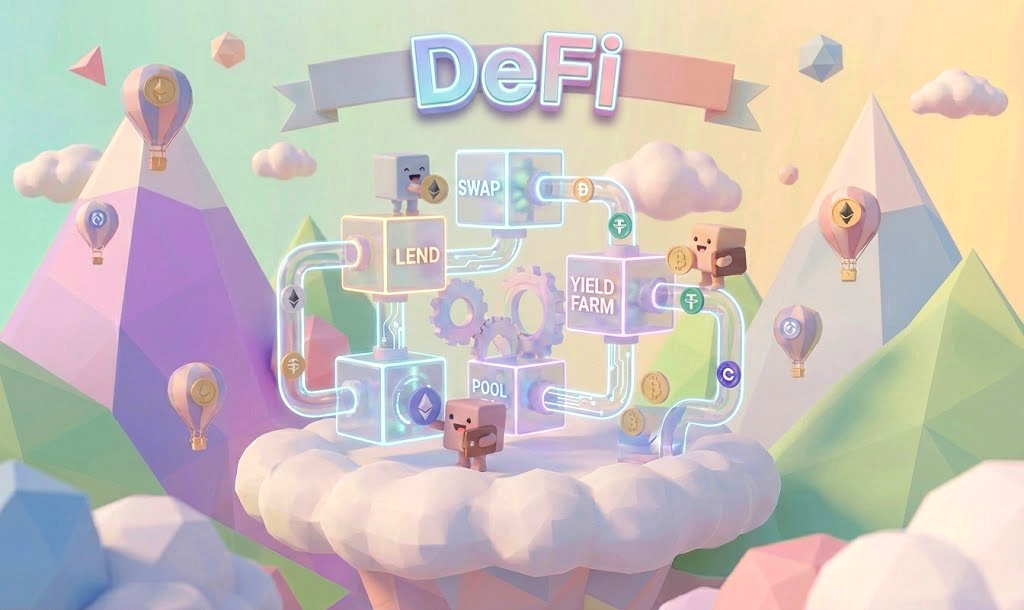
指「去中心化金融」。它是一個建立在區塊鏈上的金融服務系統,不需要像銀行這樣的中心化公司。
DeFi (去中心化金融) 是一場 Web3 運動,旨在利用 區塊鏈 技術創建一個開放且透明的金融系統,消除對銀行和金融機構等傳統中介的需求。
幾個世紀以來,全球金融體系都以中心化模式運作,通常被稱為 傳統金融 (TradFi)。這個系統由中央機構 — 銀行、政府和公司 — 控制,它們在所有金融交易中扮演可信賴的中介。儘管這種模式提供了穩定性,但也可能導致高昂的手續費、緩慢的交易時間,以及對沒有銀行帳戶的人的有限接觸。
DeFi 的誕生源於對更具可及性和效率的替代方案的渴望。透過使用公共、去中心化的 區塊鏈,DeFi 允許用戶直接以點對點的方式與金融服務互動,無需中央機構的許可。所有規則和流程都透過 智能合約 自動化,這些程式碼在滿足特定條件時會自動執行。這消除了「中間人」,提供了更高的透明度、更低的成本和抗審查性。
要開始使用 DeFi,你只需要一個相容的 錢包 和網路連線。一旦你的 錢包 存有 加密貨幣,你就可以開始與廣泛的應用程式互動:
借貸: 像 Aave 或 Compound 這樣的平台讓你能夠將加密貨幣借給他人賺取利息,或者透過提供自己的資產作為擔保來借款。這個過程由 智能合約 管理,它會自動處理借貸和還款流程。
交易: 去中心化交易所 (DEX) 像 Uniswap 允許你直接從你的 錢包 進行數位資產交易。DEX 不像由公司管理的訂單簿,而是使用 流動性池 來促成交易。這些資金池由提供 流動性 的用戶提供資金,以換取一部分的交易手續費,這種做法被稱為 流動性挖礦。